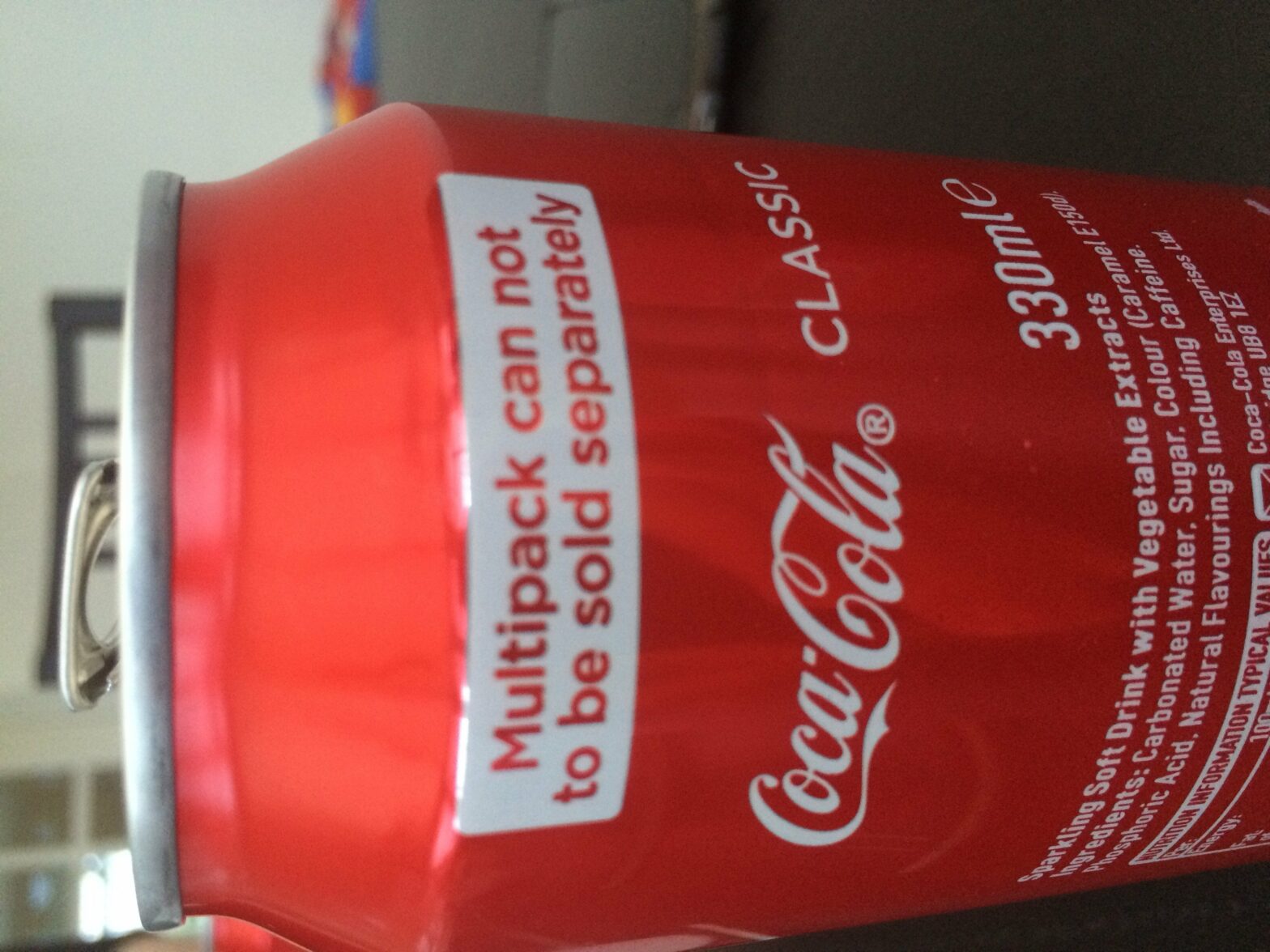 ‘Not to be sold separately’. We have all seen this precept written on multipacks like crisps, drinks, and other (typically unhealthy) foodstuffs. We also all see this frequently not followed – often in smaller shops. Today, I explore the (mostly inconsequential) question of what legal weight these statements may have.
‘Not to be sold separately’. We have all seen this precept written on multipacks like crisps, drinks, and other (typically unhealthy) foodstuffs. We also all see this frequently not followed – often in smaller shops. Today, I explore the (mostly inconsequential) question of what legal weight these statements may have.
One might wonder what the motivation behind writing these statements could be. Could it be a simple scare tactic, like ‘at your own risk’ signage – which in reality does not have the level of gravity implied.[1] Although obviously not criminalised, people have nevertheless called 999 (much to police annoyance).[2] Regardless, the Trading Standards body report receiving “regular” complaints about this.[3] For this reason, I think it warrants exploration.
Unsurprisingly, there is little legal weight to these statements. However, it is less an issue with contractual terms, rather more situational. The legal reasoning for this is essentially that no privity of contract exists between manufacturer and retailer. Privity of contract meaning that a contract cannot be enforced against a party not privy to it. Indeed, larger retailers may have specific contracts with manufacturers which prohibit this and thus, in theory, could have this enforced against them – but this is unlikely. As smaller shops will likely buy wholesale from a third-party, this is a clear-cut example of privity of contract – perhaps explaining why we only see this occur in smaller shops and not supermarkets.
Be that as it may, in a blog by Trading Standards, they outline if items are sold separately, there is a requirement to properly label and price products correctly.[4] This is because if not, there will be missing nutritional information – principally the name of the food, its ingredients and allergen details.[5]
Clearly, ‘not to be sold separately’ has no real legal force. Rather, smaller businesses are enabled by the laws of Contract to keep prices competitive by buying wholesale from a third-party. In July, Boris Johnson announced a £10m ad campaign to tackle the UK’s obesity crisis[6] – including putting calories on restaurant menus.[7] Perhaps that philosophy could be extended to these individual (typically unhealthy) items. Instead, detailing more valuable nutritional information than is currently mandatory[8] rather than this unenforced precept.
References
[1] https://www.boshers.co.uk/blog/health-and-safety-guidance/risk-valid-disclaimer-notices/
[2] https://www.dailyrecord.co.uk/news/scottish-news/999-idiots-face-blitz-by-police-1095847
[3] http://tradingstandardsblog.co.uk/splitting-multipacks-and-selling-items-separately
[4] Ibid.
[5] https://www.food.gov.uk/business-guidance/packaging-and-labelling
[6] https://www.theguardian.com/society/2020/jul/25/boris-johnson-to-unveil-10m-ad-campaign-to-cut-obesity-in-england
[7] https://www.birminghammail.co.uk/news/midlands-news/putting-calories-restaurant-menus-dangerous-18877179
[8] https://www.food.gov.uk/business-guidance/packaging-and-labelling

This was a very interesting read Chris!
Thank you, Lauren 🙂
Yes a very interesting read, Chris, and not something I had given much thought to. Well researched and a great introduction which grabs your attention!
Thank you very much 🙂